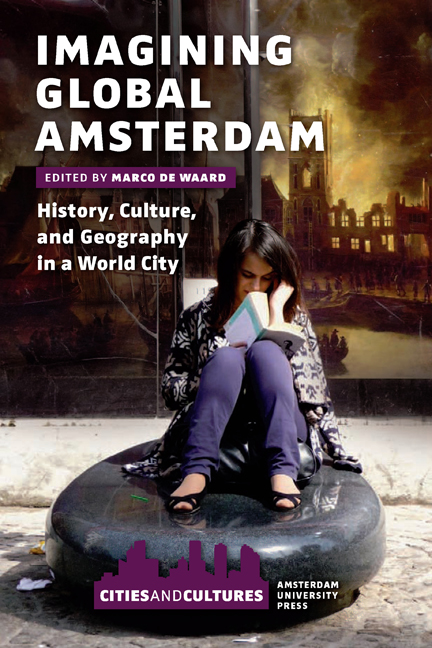5 - Romance and Commerce: Imagining Global Amsterdam in the Contemporary Historical Novel
Published online by Cambridge University Press: 19 January 2021
Summary
The central undertaking of this essay is to address the topic of Amsterdam-based historical fiction, and to ask how two different subgenres of the contemporary historical novel – the visually oriented, ‘museumized’ heritage novel on the one hand, and the cyberpunk-inflected ‘history-of-science’ novel on the other – present aspects from Amsterdam's ‘Golden Age’ past to present-day audiences. Specifically, this essay seeks to relate examples from those two subgenres to the cultural heritage industries that have become such a vital feature of the current cultural and economic landscape. At the centre of our concern is the nexus between the global economy, cultural heritage and tourism, and the various forms of cultural expression – film, television, popular fiction, popular history, art books, and the like – that stand to profit from a globalizing heritage and tourism market and which inscribe themselves in its discourses, in ways that remain to be explored.
In recent years, the heritage industry has received particular attention in film studies, where it has been described as ‘transform[ing] the past into a series of commodities for the leisure and entertainment market’, in many cases turning ‘the commodity on offer’ into ‘an image, a spectacle, something to be gazed at’ in ways replacing ‘critical perspective … by decoration and display’ (Higson 2006, 95). In this sense, heritage film can be said to have a generally conservative and hegemonic character, ‘legitimating the spectacle of one class and one cultural tradition and identity at the expense of others through the discourse of authenticity, and the obsession with the visual splendours of period detail’ (100; italics in original). As noted, our examples here will be taken from novelistic fiction, in this case fiction published over the last few decades which is set in or around Amsterdam in the seventeenth century. Significantly, these texts, while contributing to Amsterdam's own heritage traditions, primarily address foreign – mainly Anglophone – readers, playing specifically on their interest in the city's history, art galleries, and museums. In so doing, they differ from the customary focus of heritage film on national treasures such as, most typically, literary authors whose works are seen as masterpieces; they rather draw on a larger, transnational cultural heritage – even if the logic of commodification may work in similar ways.
- Type
- Chapter
- Information
- Imagining Global AmsterdamHistory, Culture, and Geography in a World City, pp. 83 - 100Publisher: Amsterdam University PressPrint publication year: 2012



